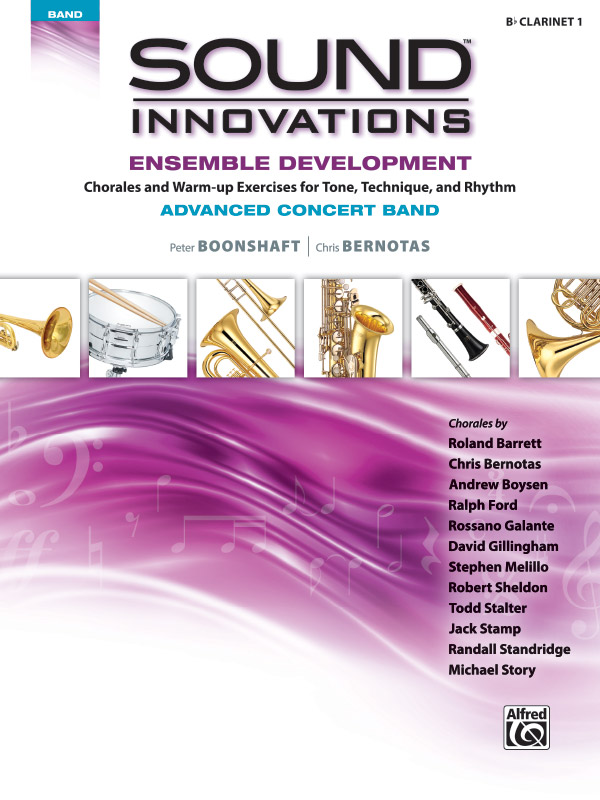
Sound Innovations Ensemble Development for Advanced Concert Band
By Peter Boonshaft and Chris Bernotas
Challenge your students with all new exercises, chorales, and more advanced material for teaching your students how to listen, evaluate, and adjust their playing. With 399 exercises in a variety of intermediate to advanced difficulty levels, including over 70 chorales, the variety and vast quantity of exercises will keep your students engaged and challenged. The exercises are repeated in different keys to prevent students from only learning the concepts by muscle memory.
The chorales are composed by Roland Barrett, Chris Bernotas, Andrew Boysen, Ralph Ford, Rossano Galante, David Gillingham, Stephen Melillo, Robert Sheldon, Todd Stalter, Jack Stamp, Randall Standridge, and Michael Story.
Shop NowAdvanced Level
Written specifically for advanced band, the exercises are grades 3–5, and cover the key signatures and time signatures used in grade 3–5 performance literature.
- All time signatures are included in this level.
- All time signatures are included, as well as exercises changing from meter to meter with provided hints to help students count correctly.
- The instrumentation includes two parts each for flute and French horn,and three parts each for clarinet, trumpet, and trombone.
- Percussion books include: percussion 1, percussion 2, timpani, and mallets.
Benefits
Improve your students ensemble skills as they learn how to balance and to create a rich, full sound. Sound Innovations: Ensemble Development for Advanced Band exercises are at grade 3–5 levels grouped by key signature. By spending even a few minutes of each rehearsal with these exercises, your students will learn to apply critical listening skills—tone, tuning, technique, balance, rhythm, dynamics, articulation, and expression—to their music. Percussion is included in every exercise and chorale, keeping your back row engaged.
Exercise Types
- Tone quality
- Breathing
- Long tones
- Ensemble and section balance
- Blend
- Intonation
- Scales (Major, chromatic, natural, harmonic, and melodic minor)
- Technical facility
- Flexibility
- Arpeggios
- Intervals
- Harmonic progressions
- Rhythm
- Rhythmic subdivision
- Meter changes
- Phrasing
- Articulation
- Dynamics
- Expression and style
- Harmonized scales
- Fully integrated percussion
- Chorales
Sample Exercises
With 399 exercises, the variety of material will allow you to rotate to a different exercise for every rehearsal. Each exercise is designed to give opportunities for learning how to blend and balance, including passing the tonic, balance and intonation exercises, moving chord tones, expanding intervals, and many more.
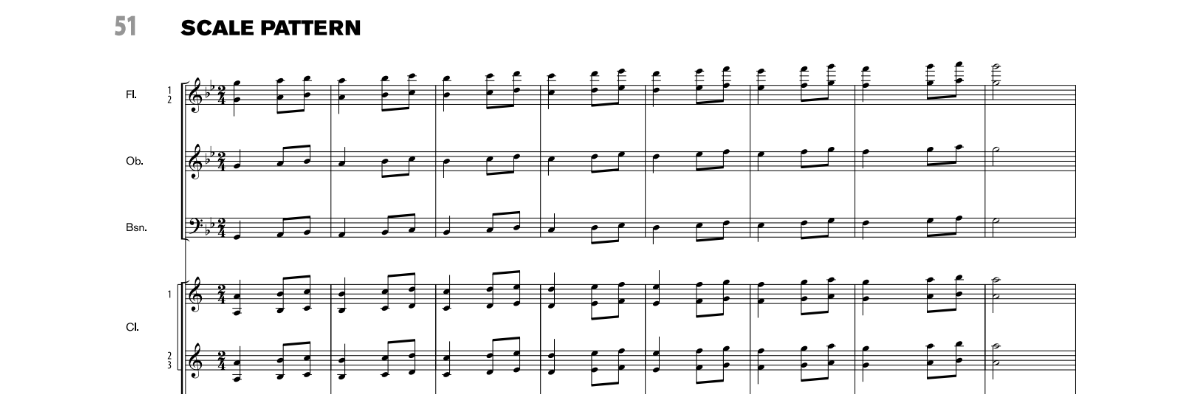
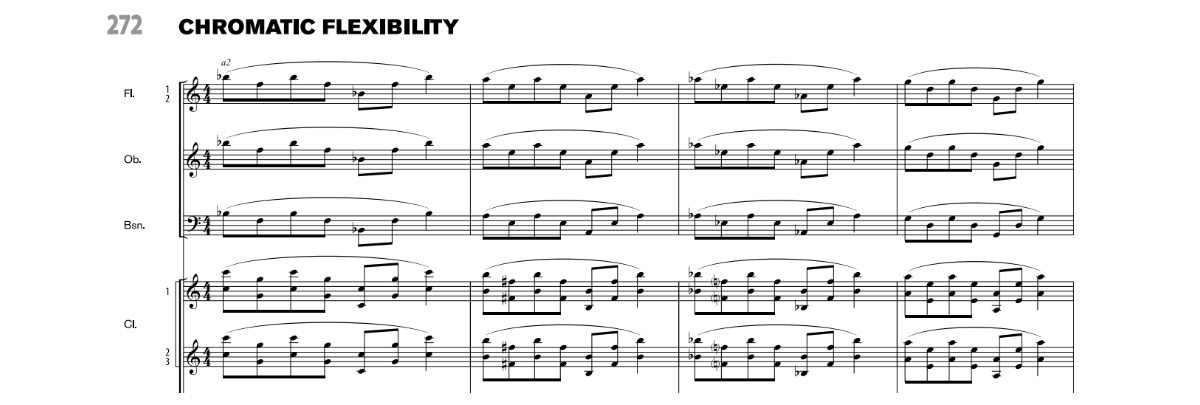
Chorales & Scale Chorales
Scale chorals are harmonized scale chorales that feature two lines for every student part: the scale, and their part in the chorale. A variety of chorales, written by some of the most renowned composers of music for young band, provide opportunities for students to develop the essential skills of tone production, blend, balance, intonation, phrasing, dynamics, articulation, style, and musical expression.
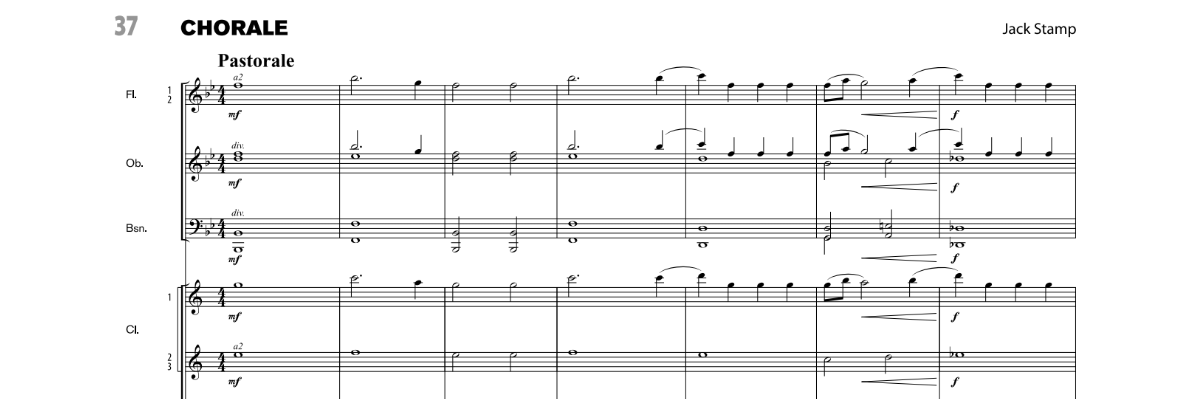
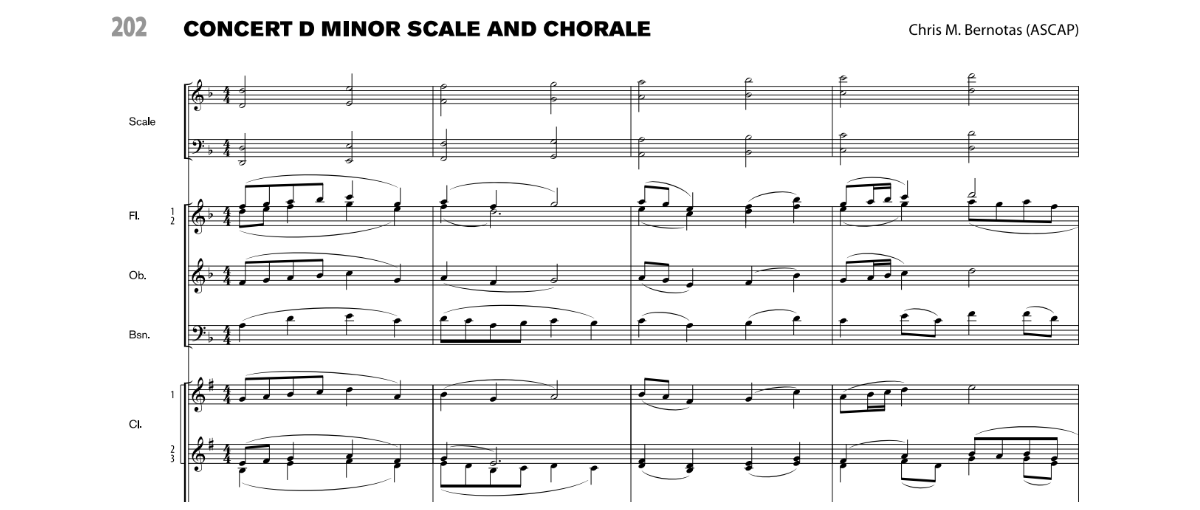
Rhythm Resources
With Rhythm and Rhythm Subdivision exercises, students will learn to understand and internalize rhythmic subdivision.
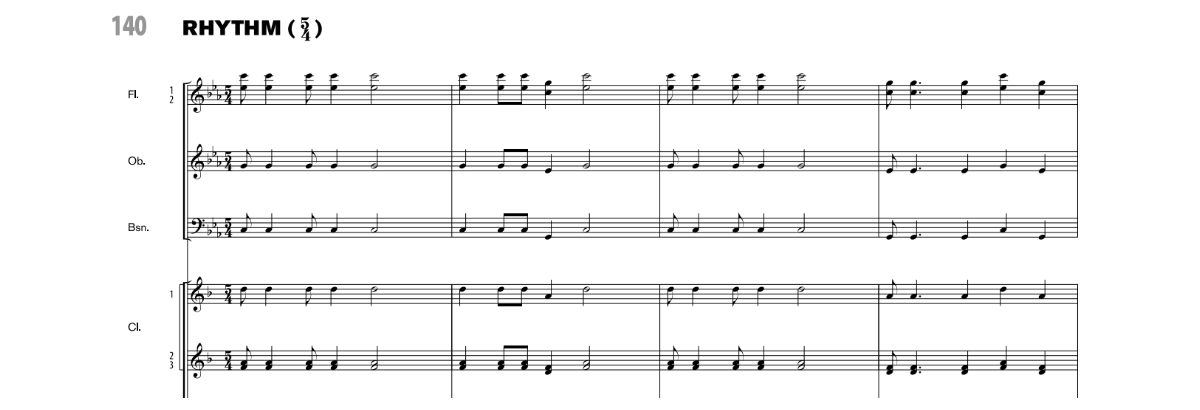
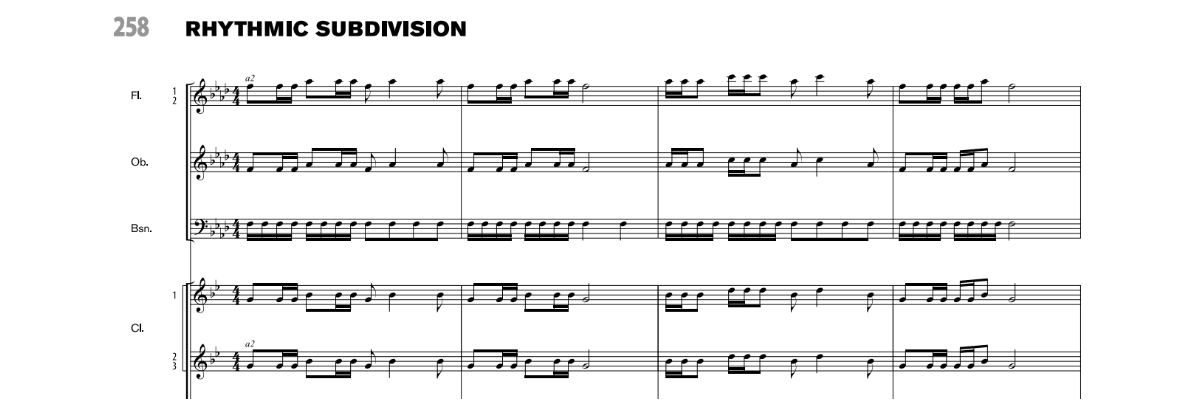
Practice Resources on SI Online
The exercises are available for free on SI Online, where students can simply to go SIOnline.alfred.com and enter the book’s item # to access everything. No login needed!
SI Online is accessible on any device that has internet access—your students can practice anywhere! Teachers can send links of specific exercises to students by accessing an exercise, and clicking on the blue Share button on the upper right to copy the link.
Access SI Online
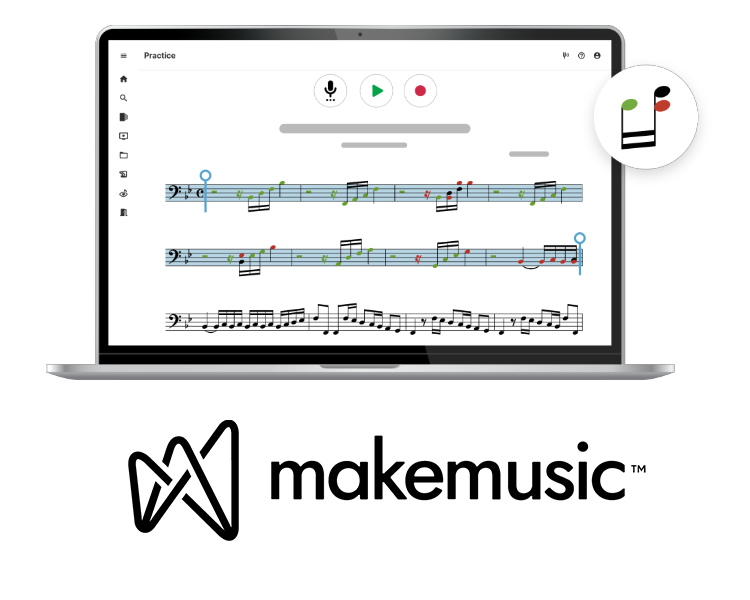
MakeMusic Cloud
Provide opportunities for deliberate practice with MakeMusic Cloud (SmartMusic)! Students can play along with professional accompaniments and receive real-time feedback in the form of red, green, or yellow notes. Teachers can monitor student progress through custom assignments and practice analytics.
Open Ensemble Development in MakeMusic Cloud
